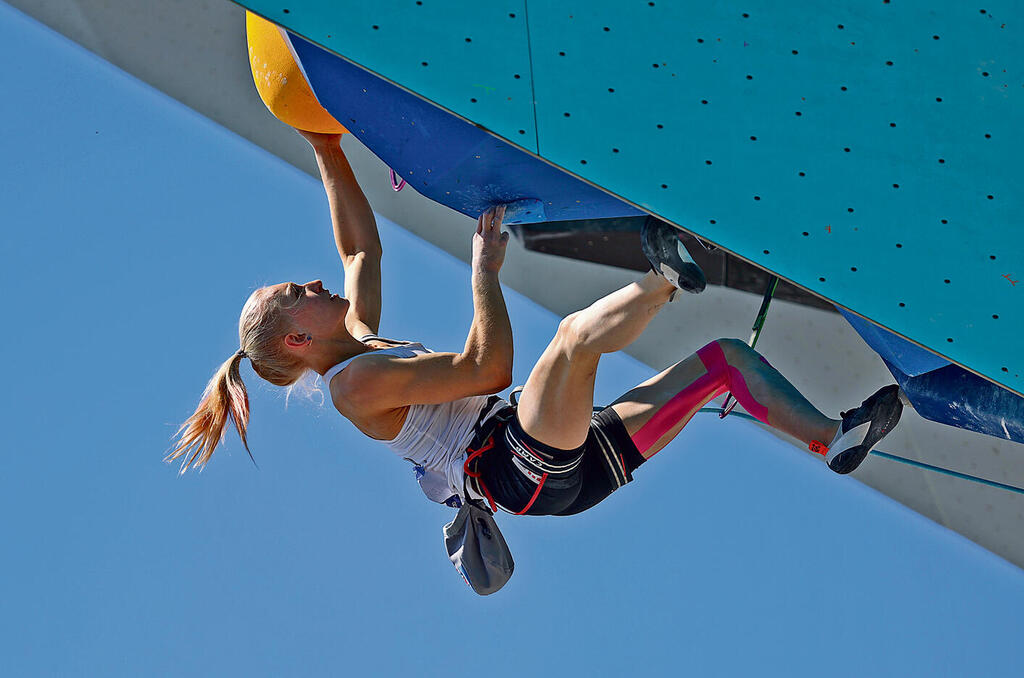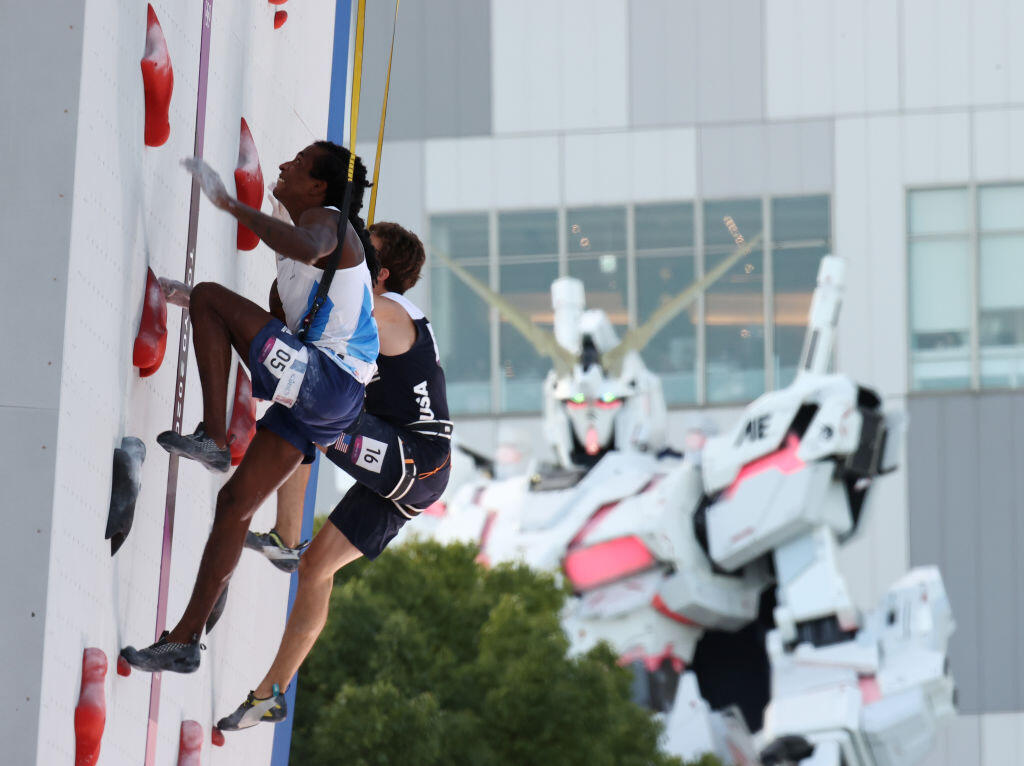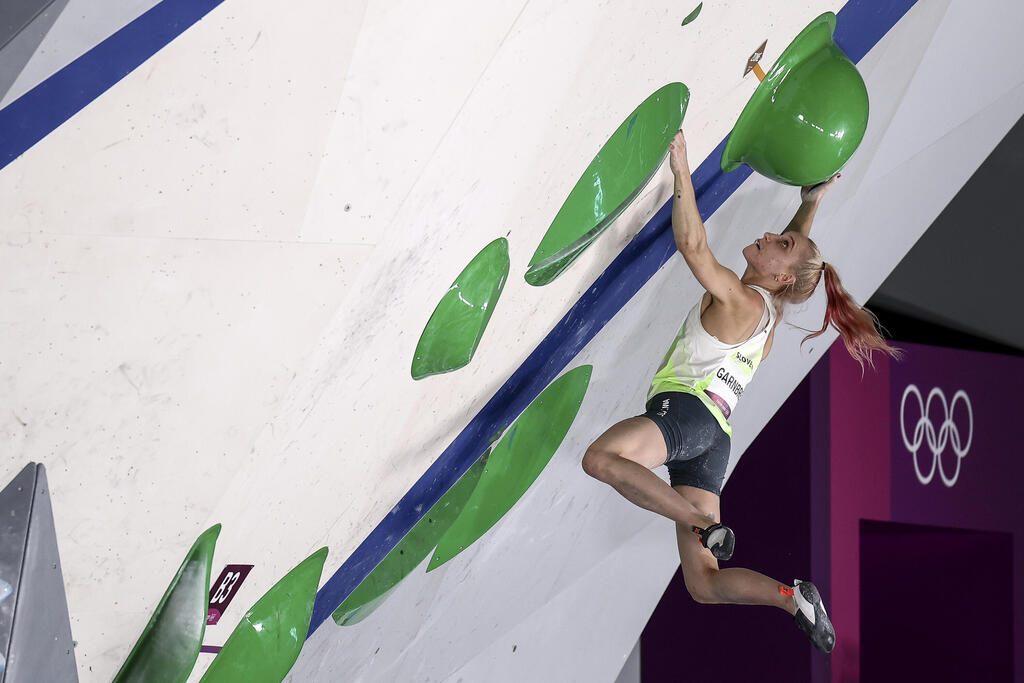Getting your Trinity Audio player ready...
There are several sports categories in which chances for eating disorders (mainly anorexia) in athletes are high. For example, a sport that involves aesthetics, in which the appearance of the body plays an important role in the ability to perform and affects the final score.
More stories:
This category includes floor and apparatus gymnastics, ice skating and artistic swimming; professions that involve weight categories such as boxing, wrestling and judo; and categories where low weight and a lean body improve performance, such as running for medium and long distances, cycling and swimming.
Now a new Olympic profession, Sport Climbing - which on the face of it seems more like a discipline that requires skills combining technique, endurance, and strength - is the new arena where young athletes, parents, coaches, and doctors struggle with anorexia. The issue recently surfaced in Germany after the German sports doctor, Dr. Volker Schöffl, announced his resignation from his voluntary position as a member of the Medical Commission of the International Climbing Association (IFSC) after 14 years. He justified his decision with the lack of effective measures taken by the association to fight against eating disorders in competitive sports.
Skeletons that climb walls
"Climbing has a problem," wrote Schöffl, a surgeon in the trauma room at the hospital in Bamberg, in a post he published on Instagram. "For many years, I rejected in shame all the inquiries I received on the subject. I cannot take any more responsibility on this matter from the inside, but I will fight the phenomenon from the outside." The post was accompanied by an illustration of a skeleton trying to climb a wall.
In the competitions themselves, you can easily notice the phenomenon: protruding bones, legs lacking muscle mass, sunken cheeks. All to allow the hands to pull up as little body weight as possible. Competitiveness which translates into starvation has already caused severe damage, especially in children, whose bodies simply stopped functioning due to lack of energy. Eating disorders cause both physiological symptoms such as kidney failure, and mental symptoms such as anorexia and depression, thus the body is more susceptible to diseases and injuries.
These cases are very difficult to diagnose; one of the methods is to measure the athlete's BMI which is defined as the body mass divided by the square of the body height. Whenever a problem appears, athletes should undergo tests to evaluate body fat percentage, bone density, hormones, and psychological tests.
Schöffl traveled from one competition to another and collected relevant data, but the International Association rejected his proposals, and announced that it preferred a rather educating method for both athletes and coaches, and that starting from 2024, it intends to handle the issue with a more holistic approach.
The Austrian professional climber Angela Eiter, who won the IFSC World Championships several times, admitted in her autobiographical book from 2019 that her training regime and the monitoring of her weight began as soon as she started engaging in the sport. "At first I thought it was nothing but a girl's whim," she wrote. "But as I grew up, I realized the direct connection between low weight and excellent performance on the walls, and how much it affected me and was part of my life."
In a YouTube video from 2021, three American female climbers talk about the anorexia and eating disorders they experienced. "I had to reach an age where I could listen to myself and not just to my coaches and parents," said Emily Harrington. "When it happened, I realized that there was no connection between lightweight and climbing. On the contrary. The stronger and more muscular your body is, the better you climb."
"The biggest problem in this sport, especially since its entry into the Olympics in Tokyo, is eating disorders and anorexia," said Janja Garnbret, the Olympic champion from Slovenia, in an interview last year. "The problem is that no one is really talking or dealing with the issue, and as a result, we will grow a generation of skeletons that climb walls."
Schöffl's resignation caused many female athletes in the sport to speak out. "There must be a drastic change," Dutch climber Eva van Wijck wrote on Instagram. "Everyone thinks and is trained to think about the connection between weight and success, but in the end, you realize that you are only getting thinner, but not stronger. From a psychological point of view, it is really bad. Only when you stop worrying about your weight do you realize what a psychological burden it was."
Many girls suffer from eating disorders from a young age. An internal need for self-control is mixed with demands from society at school or from images of women portrayed in the media. At the age of 16, van Wijck started training in climbing, and after a short while, she made it to the national team. Her self-image and self-confidence were boosted, the price she had to pay - maintaining weight while following a very strict diet - seemed worthwhile.
This phenomenon, called RED-S (Relative Energy Deficiency Syndrome) is the most known and notorious secret in the industry. This is particularly upsetting, because in Germany, for example, there are entire teams of dieticians, doctors, psychologists, physiotherapists and sports scientists, whose job is to locate problematic cases, conduct follow-up and offer treatment. The refusal of the International Association to adopt the treatment methods in favor of the athletes' health is nothing less than startling.
Explosion in popularity
Ignoring this troubling problem is twice as infuriating given that climbing is an increasingly popular sport among youngsters. Many of them engage in it as part of their leisure culture, and not necessarily in the name of competitiveness. Many children celebrate their birthday parties in such facilities, quite a few of them begin to engage in the sport competitively, for some, it means starvation and eating disorders.
The International Association is not disturbed by this phenomenon. This year, five climbers will participate in the World Championship, although according to Schöffl, they should not compete because they are underweight. This, according to Schöffl, should also serve as a warning signal to other climbers: self-starvation will lead to a ban on participating in the championship. His recommendation to the association however was rejected, and therefore he resigned. As a person and as a doctor he could not bear this responsibility any longer.
As mentioned, the German staff has a regular program for diagnosing eating disorders among climbers, which includes scientific accompaniment, monitoring nutritional behavior, and examining menstruation irregularity among women - a clear symptom of eating disorders. A recent study revealed that 16 percent of the world's top female climbers suffer from irregular menstruation.
But all the studies, the testimonies, and the pleas of renowned athletes in the sport to change the regulation and to ban participation in competitions for those who suffer from a weight problem have been so far ineffective.
Maybe now, when more and more climbers are testifying about their problems, a change will occur. In the books on mental disorders, there is no deadlier disease than anorexia.






